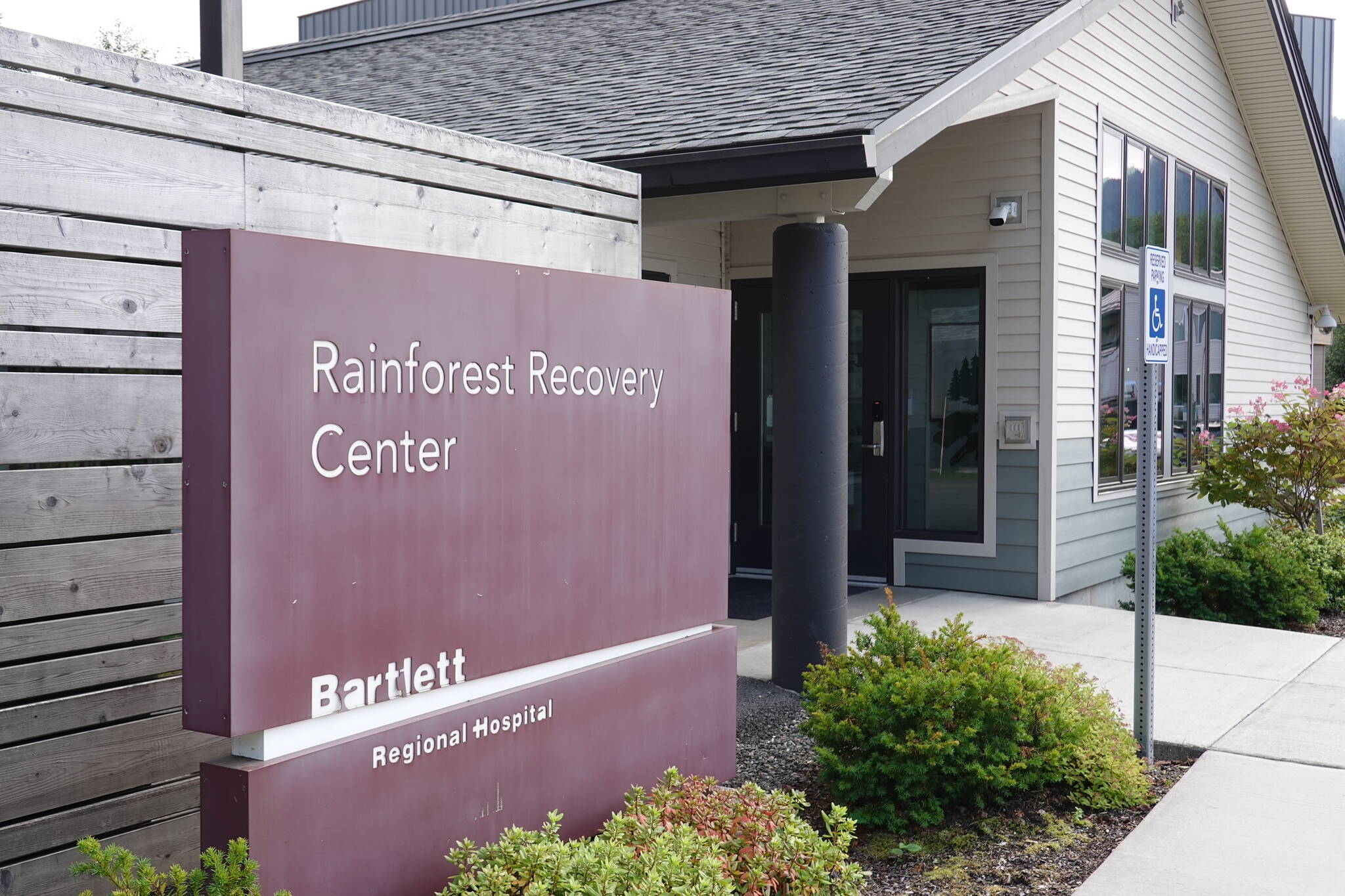Giving Gastineau Human Services up to $500,000 for an accelerated expansion of the nonprofit’s residential substance abuse recovery program, rather than to Bartlett Regional Hospital which is closing Rainforest Recovery Center next Tuesday, got a preliminary vote of approval from Juneau Assembly members on Wednesday night.
The nonprofit is drastically speeding up its plans and now hopes to add eight beds to its current 19-bed facility by Oct. 14, rather than the original target date of Jan. 6, GHS Executive Director Jonathan Swinton told Assembly members meeting as the Finance Committee. He said a rough estimate of the startup cost for the expansion is $650,000 “that we would eat with the hope that we would get it back.”
“Certainly the $500,000 you offered to the hospital would definitely help us,” he told Assembly members.
The committee voted Sept. 4 to send a $500,000 funding proposal to keep Rainforest Recovery operating for the rest of the fiscal year ending next June 30 to the full Assembly, expecting a gradual transition to GHS during that time. But hospital officials unexpectedly announced the program’s closure last Thursday, citing resignations by several employees due to the knowledge the hospital’s program was being phased out.
Rainforest Recovery is a 16-bed facility offering “high-intensity” residential treatment, while the GHS program offers “low-intensity” treatment with less medical supervision and structured programming. But Bartlett and GHS officials have said the difference in treatment levels is not vast, and note that Juneau residents make up about half of Rainforest Recovery patients and thus could be accommodated with the GHS expansion.
Assembly members voted 6-2 in favor of having city staff draft an ordinance providing up to $500,000 to assist GHS with its residential program for the remainder of the fiscal year, with members Greg Smith and Michelle Bonnet Hale opposed, and Mayor Beth Weldon absent due to being out of town on official business. Smith said he objected because it’s not clear yet from Swinton’s preliminary presentation if GHS needs such funding for the expansion and, if so, how much.
The full Assembly still needs to introduce the ordinance at a future meeting and offer the public an opportunity for comment before voting whether to approve the funds.
The closure of Rainforest Recovery is part of a series of budget-balancing moves by the hospital in recent months to try to stem losses that as of a few months ago have averaged $1 million a month since the summer of 2020. Among the other moves are closing crisis stabilization services that the hospital began offering last December, and getting the Assembly to support supplemental funding for hospice and home health programs.
While the closure of the crisis program opened space in the newly built Aurora Behavioral Health Center, it was designed primarily as office space and therefore doesn’t have individual rooms with bathrooms like Rainforest Recovery does, said Joe Wanner, Bartlett’s chief financial officer and incoming CEO as of Sept. 29, in response to a question from an Assembly member about the use of the Aurora building.
Hospital officials say the hospital has operated at a profit for the first time since 2019 during the past three months.
Some Assembly members expressed displeasure with hospital officials due to being caught off guard by the sudden closure of Rainforest Recovery. Smith asked if providing more money to the program for the rest of the year might have made a difference, but Kim McDowell, the hospital’s chief nursing officer and chief operating officer, said the issue for departing employees was long-term stability.
“It’s my opinion that if the program wasn’t funded in perpetuity we’re going to lose the staff that we lost at that point no matter what funding was provided,” she said.
The four patients at Rainforest Recovery at the time of the announced closure will all either have completed their program by Tuesday or have made plans to continue their treatment elsewhere, McDowell said.
A key question Assembly members had for Swinton: is the recovery program at GHS financially sustainable?
“We’ve had a year now since we opened the 19 beds in our current program and it is currently financially sustainable,” he said, adding that is based on current Medicaid reimbursement rates, as well as support from the Juneau Community Foundation and state grants.
• Contact Mark Sabbatini at mark.sabbatini@juneauempire.com or (907) 957-2306.

